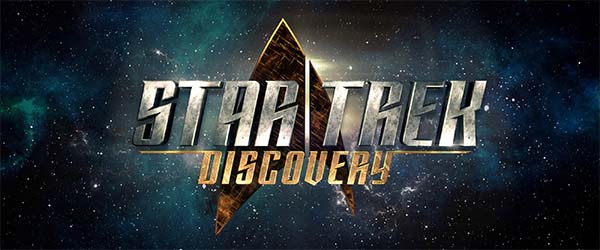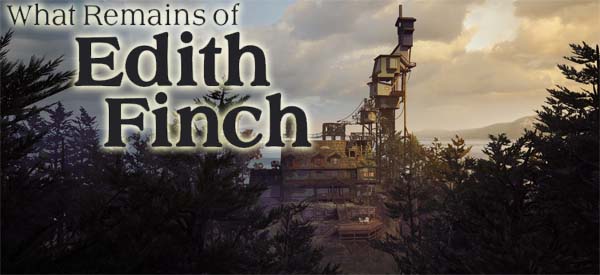
I finally sat down and binged the second half of Star Trek: Discovery's first season. I was actually excited to see it (not excited enough to sign up for CBS's All Access service), since it looked like the mirror universe twist would take the show in new and creative directions, and might even establish that Discovery would be a sort-of anthology series after all.
Boy, was I disappointed.
I was initially excited to see Discovery's mirror universe episodes.
Stakes feel artificial and exaggerated
The mirror universe storyline didn't feel like it was new or creative at all. In fact, it felt like it was retreading a lot of territory that Star Trek has covered before. Except now, they are supercharging it with stupid.
Once again, I'm not going to fuss about the show being aesthetically different from the original series. Such complaints are mostly pedantic. You can't use the same 1960's aesthetics from the original series and expect the show to look futuristic to modern audiences. I can overlook the shiny touch displays, the redesigned ships, the new Klingon makeup, the holographic communications, and things like that. I'm a bit less willing to overlook details like the insignia badge, but whatever.
I was actually a little bit excited to see the mirror universe in the second half of Discovery. After all, the mirror universe episodes of Enterprise were some of the most fun that series ever allowed itself to have. Granted, it was super fan-servicey and silly, but it had that campy charm that helped make the original series so successful. Discovery does not have any camp, or any charm.
Enterprise's "In a Mirror, Darkly" got away with its silly fan service by being charmingly-campy.
What I can't tolerate are the major anachronisms like the Klingons having cloaking devices ten years before Balance of Terror, fifteen years before The Time Trap, and twenty-eight years (give or take) before The Search for Spock. Yes, I also complained about the Romulans already having a cloaking device in Star Trek: Enterprise as well. [More]
95d074a1-40d0-4add-a244-fcf0dfd9bc46|2|3.5
Tags:Star Trek, Star Trek: Discovery, CBS, all access, streaming television, U.S.S. Discovery, science fiction, spore drive, warp drive, Klingon, Qo'nos, mirror universe, United Federation of Planets, Terran Empire, Gabriel Lorca, Jason Isaacs, Michael Burnham, Sonequa Martin-Green, Ash Tyler, Voq, Shazad Latif, Mary Wiseman, Sylvia Tilly, Doug Jones, Saru, Christopher Pike, Anson Mount, USS Enterprise, Midichlorian, Mary Sue, McGuffin

Last year, after my initial enthusiasm for Civilization VI began petering out (until the announcement of the expansion), I went on a bit of a space-4x bender. I spent some time with the rebooted Master of Orion. It was good, but I was underwhelmed by its limited scale and casual depth. I also planned on hitting up Endless Space 2. I played the first Endless Space briefly off-and-on, and I liked it, but kept getting diverted to other games and projects and never really allowed myself the time to get comfortable with the game.
But first, before diving into Engless Space 2, I wanted to tackle a game that's been in my library for over a year: Stellaris. This is an epic, space 4x strategy game developed by Paradox Interactive -- the same developer who brought us the infamously complex and detailed Europa Universalis and Crusader Kings series.
A gentler learning curve than Europa Universalis
I was hesitant to try Stellaris because of its relationship to Europa Universalis (and its notorious complexity), but I was surprised to find that Stellaris has a bit of a gentler learning curve. Instead of starting you out "in median res" with a developed European kingdom with armies already mobilized, alliances and rivalries already in place, and wars already in progress, Stellaris starts you out in control of a single planet in a single star system, with just a small fleet of corvettes, a construction ship, and a science ship at your disposal. You send your science ship to explore the other planets in your system, then on to the nearest star, and slowly explore from there at a much more comfortable pace that is akin to a game like Civilization or Master of Orion. Unlike with Crusader Kings and Europa Universalis, I didn't feel like I needed to sit down with a history textbook in order to know what was going on at the start of my game.
You start the game with a single science ship to explore your own star system, and work your way out from there.
Don't let this initial apparent simplicity fool you. Stellaris is still quite deep, quite complex, and the galaxy that you'll explore really does feel vast. While the Master of Orion reboot has galaxies with a mere dozens of stars (very few of which contain more than one or two planets), Stellaris features a default galaxy size consisting of hundreds of stars, most with their own planets, which might (in turn) contain moons.
There's still going to be some trial and error, as you'll make a lot of mistakes and miss a lot of opportunities in your first few games. If you left the "ironman" mode disabled, then you'll at least be free to re-load earlier saves and try to play better if anything goes horribly wrong. However, Paradox throws a bit of a curve ball at players by disabling achievements if you disable ironman mode. You won't stumble into achievements in your learning game(s) or by save-scumming; you'll have to earn them in the Ironman mode!
You also won't be able to manually save while in Ironman mode. You have to wait for the game to perform an auto-save (which I think happens every few in-game months, or maybe every year?). This can be very annoying if you don't notice the "saving game" popup and don't know if the game has saved your most recent actions. It's fine to include a single save file for this mode, but they could at least include a "Save and Exit" option in the pause menu! [More]
2caf8b87-93d3-4596-b06c-1db37d776061|0|.0
Tags:Stellaris, Paradox Interactive, strategy, grand strategy, 4x, science fiction, space, faster than light, hyperspace, wormhole, anomaly, research, terraforming, war, diplomacy, Master of Orion, patch, Skinner Box, Star Trek: Birth of the Federation

The Finch family is, as we are told, cursed. It's not a spoiler to say that every member of the family dies a tragic, premature death. The family tree in the sketchbook tells you as much at the start of the game.
We play, ostensibly, as 17-year-old Edith Finch, the last surviving member of the Finch family, but also an expecting mother. Her son will carry on the name and legacy of the family. She returns to her childhood home to learn the stories of all her cursed relatives, as she debates internally with whether to share these stories with her son, or to let the past (and its myriad tragedies) fade away and die.
The Finch family is cursed by tragedy.
The house itself, is a whimsical generational home in which each member of the family is given his or her own unique room. As more members of the family are born, new rooms are added onto the house, including a towering structure on the top that makes the house look almost like a castle. After losing both of her sons, Edith's mother began sealing off everyone's rooms so that Edith (and any future children) would not become aware of how the others died. But, each room has alternate ways in and out, including some secret doorways and tunnels.
Despite the whimsical, fantastical nature of the house, everything feels surprisingly real and lived-in. The house is cluttered with the paraphernalia of the family (since they were apparently also hoarders), and each room has a very distinct personality. Even the shared spaces that do not belong to any one individual still exhibit a sense of personality to them. This is a family that takes great pride in their history and the connectedness that they have towards one another.
The Finch home is a whimsical, generational house.
As she learns about these stories, Edith questions whether the family members should know about the stories of their relatives and the supposed curse? Or does that knowledge make tragedy a self-fulfilling prophecy? Should she share these stories with her unborn son, at the risk that the knowledge may cause him to also fall victim to the curse? Or is he cursed either way, and has a right to know it?... [More]
064c0f5a-6131-4678-9699-8286778e4d25|0|.0
Tags:What Remains of Edith Finch, Edith Finch, vignette, walking simulator, indie gaming, story, interactive, art, family, generational living, children, history, house, dramatic irony, destiny, fate, self-fulfilling prophecy, curse, surrealism, whimsy, Tim Burton, Gone Home
Although the components for Gale Force Nine's Star Trek: Ascendancy are generally pretty exceptional (and the expansion components are also quite high quality), I did have one major disappointment with the package: the game does not include plastic figures to represent the various faction's starbases. Instead, the game uses cardboard tokens to represent starbases. These are functionally fine, but they just don't have the presence on the board to match their strategic importance within the actual game, and it's easy for them to kind of disappear into the background of the game's map. The individual cardboard tokens don't even have art specific to each faction; all five factions have pictures of Federation starbases on the top.
The manufacturer was apparently aware of this, and, in addition to selling "expansions" containing additional ships and control nodes for each faction, they also sell a set of three plastic starbase figures for each faction.
All factions use carboard tokens for starbases, all of which have pictures of Starfleet starbases.
Since I really like the Ascendancy board game, I wanted to support the manufacturer and designers. I had already purchased all three of the game's expansions (the Cardassian faction, Ferengi faction, and Borg: Assimilation expansion), and I'll be playing and reviewing them soon. I also went ahead and bought the starbases. GF9's storefront wants $12 USD for each set of a faction's three starbase figures. That's a pretty steep price for components for a game that already costs $100 without any expansions. $12 times five factions comes to $60 (almost two-thirds the cost of the core game!). The core game's components are all pretty nice, as are the components for the Borg expansion, and the pictures of the bases looked pretty nice (even though they are unpainted). So I went ahead and made a purchase.
I was excited to have the new toys to play with -- I always like getting new games and toys. But when they showed up, a lot of that excitement was dashed. The product that had been delivered was substantially sub-par.
These are definitely not ready to be played with out-of-the-box...
Defects and poor quality
The Ferengi and Klingon bases were attached to plastic frames and had to be torn off, and the remains of the frames had to be cut off of the starbase figures in order for the figures to fit into their bases and stand on their own. One of the Ferengi figures snapped and broke while I was removing it from its plastic frame. I had to super-glue it back together... [More]
0c252a06-3e87-4d43-b75e-bc67b2ad3788|1|5.0
Tags:Star Trek, Star Trek Ascendancy, Gale Force Nine, board game, strategy, 4x, Federation, Romulan, Klingon, Cardassian, Ferengi, starbase, miniature, glue

I made it through the big winter game releases, my play-time with Civilization VI's first expansion has slowed down, and the lackluster Green Cities expansion means that I'm not sinking tons of time into Cities: Skylines anymore. This has left me free to finally dive into my Steam back-log once again and try to finally cross off some of the games that have been sitting there for a year or longer. Oh, sure, I have some big games that I'm still playing off and on, like Monster Hunter: World and the 2.0 update of Stellaris, and those reviews will come in time.
Firewatch was released in February 2016, and has been sitting in my Steam library since the summer sale of that same year. I was actually surprised that it had only been two years. I was half afraid that I'd find the game had been sitting around since like 2012 or something like that. Two years isn't that bad, right? I'm not too late to this party, am I?
Firewatch is a summer job to just ... get away from it all.
The life you left behind
Basically, the game is about a middle-aged man dealing with a mid-life crisis. Except that it isn't the stereotypical "mid-life crisis" in which a 40-year-old man goes out and buys a sports car to feel young and "cool" again. In this case, Henry takes a job as a fire look-out at a national park in order to escape the very real life crisis of dealing with his wife suffering from early-onset Alzheimers. He's trying to escape from the very real trauma of losing his wife, Julia. Julia is actually still alive, but the illness means that she isn't the same person, and Henry is struggling with whether he can even stand to visit her anymore, and whether she's effectively "dead to him".
Not only is he losing his wife, but he's also dealing with the guilt and grief of not ever having really given her the life that she wanted. His own selfish desires and apathy meant that they kept putting off having kids, Julia never got to live where she wanted to live and have the job that she wanted to have, and so forth. And now Henry and Julia are suddenly out of time. Not only can he not have the life with Julia that they both want, but he's not young enough to really start over either. He's stuck with the life choices that he's made, and he doesn't want to have to face that.
The game that follows is an exploration of choice, and how a person copes with the consequences of their choices.
There won't always be a "later"...
I'm in my early 30's (a good decade younger than Henry), but I'm starting to get to the age when this sort of thing really hits me hard as well. I'm not 20 years old anymore. I'm becoming very much aware of the ticking clock as well. The pressure to have children soon or accept that we never will weighs on my girlfriend an I. Fortunately, she has a child from a previous relationship, so we did both have the opportunity to raise at least one child together.
My 7-year-old proxy daughter, by the way, asked me who my character in the game is and what he looks like. I told her that he's a "kind of pudgy, balding, middle-aged man with a beard, named Henry." To which she responded, "like you?". Sigh. Yes, sweetie, just like me... [More]
8fc0bb9b-149c-4a34-a9b6-20225c65b05f|0|.0
Tags:Firewatch, Steam, Campo Santa, Panic Inc., walking simulator, indie gaming, mid-life crisis, marriage, time, Alzheimers, dementia, open world, map, compass, cartography, national park, fire, forest, forest fire, nature, road trip, camping
|

| 12 | | | | | | | 60 | | 11 | | | | | | | 55 | | 10 | | | | | | | 50 | | 09 | | | | | | | 45 | | 08 | | | | | | | 40 | | 07 | | | | | | | 35 | | 06 | | | | | | | 30 | | 05 | | | | | | | 25 | | 04 | | | | | | | 20 | | 03 | | | | | | | 15 | | 02 | | | | | | | 10 | | 01 | | | | | | | 05 |
|